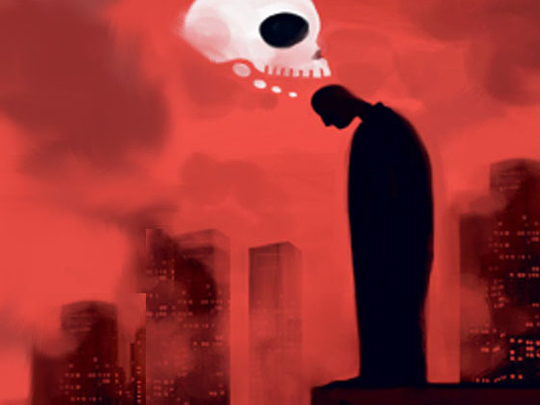
Mumbai: As World Mental Health Day with the theme of Depression: A Global Crisis was observed across the world on Wednesday, here in India and particularly Mumbai, depression is a serious problem that has yet to be properly tackled.
While a host of NGOs give a helping hand to depressed people in the city, the health department of Brihanmumbai Municipal Corporation (BMC) is only now planning to set up a helpline, Life is beautiful, in a public-private partnership. A BMC health official said that the plan is still being conceptualised.
Unfortunately, even governments at the state and central level have not taken the issue seriously, says Johnson Thomas, Director of Aasra, an intervention centre, based in Navi Mumbai, for the lonely, distressed and suicidal, and functioning since September 13 1998.
“In an ongoing survey across the main cities of India, 63 per cent of 5,000 respondents have told us that they have experienced depression at some point in their lives. And out of this, 90 per cent have thought of committing suicide,” Thomas told Gulf News.
At least three people commit suicide in Mumbai every day and two every week in Navi Mumbai.
The recent suicide of veteran singer Asha Bhosle’s daughter Varsha Bhosle has brought the issue of depression and suicidal tendencies into the spotlight. In spite of all the help, treatment and counseling, the singer’s fans are wondering “how could Asha’s daughter end her life in this tragic manner.”
According to the World Health Organisation, more than 350 million people of all ages, in all communities are affected by depression, and suicide is among the top leading cause of death globally for all ages. Every year, nearly one million people kill themselves. Although there are known effective treatments for depression, access to treatment is a problem in most countries and in some countries fewer than ten per cent of those who need it receive such treatment.
Relationship break-ups, illnesses, unemployment, exam pressure, poverty, family problems and dowry disputes are just some of the factors that lead to depression and the risk of suicide.
“The problem is that families in India don’t take it seriously if someone has attempted suicide or threatens to do so. This is because of lack of knowledge,” says Thomas.
Aasra’s 24-hour helpline answers at least 35 calls per day, he says. There are others, too, doing their bit. But what would bring about a significant change is the way the government and health authorities take up this grave problem. Currently, there are only around 4,500 psychiatrists in the country. A sustained campaign across the country is essential, he adds.












